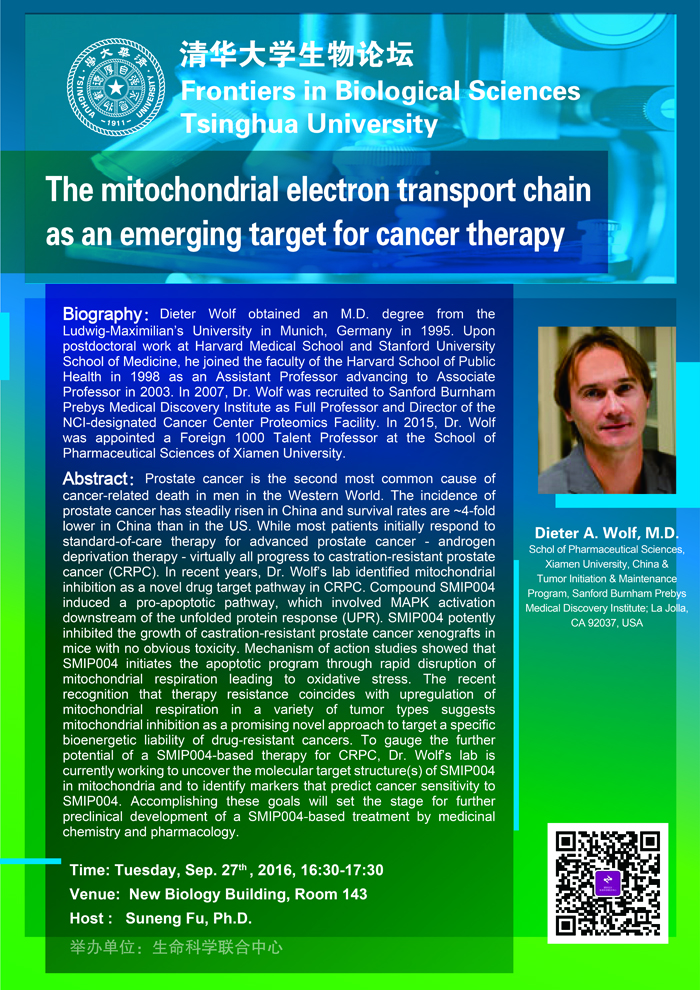The mitochondrial electron transport chain as an emerging target for cancer therapy
Dieter A. Wolf, M.D.
Schol of Pharmaceutical Sciences, Xiamen University,
China & Tumor Initiation & Maintenance Program,
Sanford Burnham Prebys Medical Discovery Institute, La Jolla, CA 92037, USA
Biography:
Dieter Wolf obtained an M.D. degree from the Ludwig-Maximilian’s University in Munich, Germany in 1995. Upon postdoctoral work at Harvard Medical School and Stanford University School of Medicine, he joined the faculty of the Harvard School of Public Health in 1998 as an Assistant Professor advancing to Associate Professor in 2003. In 2007, Dr. Wolf was recruited to Sanford Burnham Prebys Medical Discovery Institute as Full Professor and Director of the NCI-designated Cancer Center Proteomics Facility. In 2015, Dr. Wolf was appointed a Foreign 1000 Talent Professor at the School of Pharmaceutical Sciences of Xiamen University.
Abstract:
Prostate cancer is the second most common cause of cancer-related death in men in the Western World. The incidence of prostate cancer has steadily risen in China and survival rates are ~4-fold lower in China than in the US. While most patients initially respond to standard-of-care therapy for advanced prostate cancer - androgen deprivation therapy - virtually all progress to castration-resistant prostate cancer (CRPC). In recent years, Dr. Wolf’s lab identified mitochondrial inhibition as a novel drug target pathway in CRPC. Compound SMIP004 induced a pro-apoptotic pathway, which involved MAPK activation downstream of the unfolded protein response (UPR). SMIP004 potently inhibited the growth of castration-resistant prostate cancer xenografts in mice with no obvious toxicity. Mechanism of action studies showed that SMIP004 initiates the apoptotic program through rapid disruption of mitochondrial respiration leading to oxidative stress. The recent recognition that therapy resistance coincides with upregulation of mitochondrial respiration in a variety of tumor types suggests mitochondrial inhibition as a promising novel approach to target a specific bioenergetic liability of drug-resistant cancers. To gauge the further potential of a SMIP004-based therapy for CRPC, Dr. Wolf’s lab is currently working to uncover the molecular target structure(s) of SMIP004 in mitochondria and to identify markers that predict cancer sensitivity to SMIP004. Accomplishing these goals will set the stage for further preclinical development of a SMIP004-based treatment by medicinal chemistry and pharmacology.
Time: Tuesday, Sep. 27th, 2016, 16:30-17:30
Venue: New Biology Building, Room 143
Host: Suneng Fu, Ph.D.

